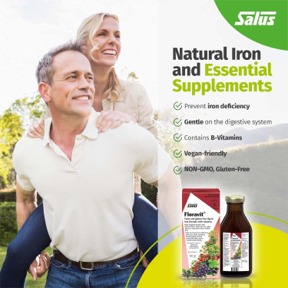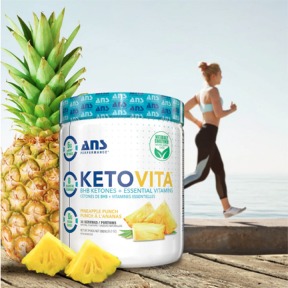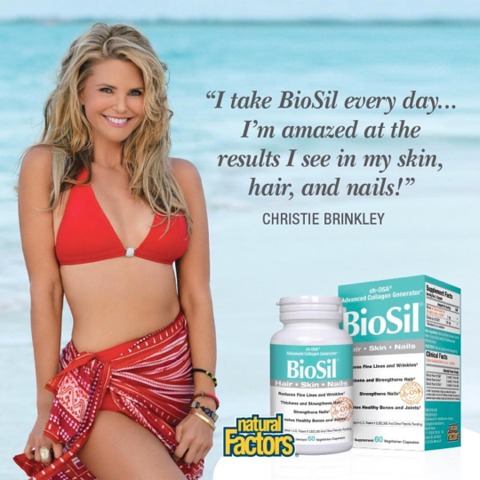Glucosamine Supplements -More Than Just Joint Health

Approximately 30 years ago, Glucosamine Sulfate (also referred to as GLS) became the mainstream supplement for arthritis. When it first started showing up in health stores, it was one of the most sought-after natural health products. It continued to gain in popularity, and then as the years went by, other supplements began to take their place. Glucosamine was first discovered 30 years ago, in the 1960s, by a pharmacologist specializing in osteoarthritis.
Today, glucosamine can still be found in natural health products for joint health, usually in combination with other supplements such as Chondroitin, MSM and Curcumin. But it has also started to emerge as a stand-alone supplement for heart health.
To see the connection, you need to first understand what glucosamine is and how it works in the body. Glucosamine is a polysaccharide that naturally occurs in joint tissues, skin, nails, bones and ligaments. GLS is also found in synovial fluid, (that occupies the space in your joints) You may better associate GLS with its support for building cartilage. Cartilage is flexible, connective tissue that functions as the padding at the end of your bones where your joints meet. Your body’s glucosamine levels start to fall as you age, and your cartilage becomes less flexible. Synovial fluid is not as fluid, which in part all leads to the breakdown of joints.
The evidence on the benefits from GLS and joint health is all over the place, with some research speaking favourably for the product, others scratching their heads trying to sort out why and how it works and those that do not believe it does.
Some common threads in the research believe that the naturally occurring sulphur found in GLS is the key to joint health because sulphur must be present in cartilage to maintain and repair it. GLS also helps to build hyaluronic acid levels, you may recognize this as a skin supplement, but it provides strength and elasticity to your joints ligaments and your skin.
The other common conception recognized in studies is that GLS helps reduce inflammation, which results in the reduction of pain. For this reason, it GLS is still used today as a natural remedy for arthritis conditions.

So how does all of this relate to heart health?
A new study in the British Medical Journal has reignited interest in GLS and heart disease, specifically Atherosclerosis.
Atherosclerosis is considered a chronic inflammatory disease, and GLS provides anti-inflammatory results which protect your heart by enhancing the repair of damaged tissue and reducing inflammation. The results of the new studies were all based on the long-term use of GLS. There is still more research needed, and GLS will may not completely eliminate your risk for heart disease. However, it is a factor to consider and a new way to look at Glucosamine supplements, not only as a means to support healthy joints but in reducing overall inflammation.
You can still find stand GLS in a stand-alone supplement. Natural Factors Flexable Glucosamine is made with shellfish and potassium rather than sodium, which is a better option for people that are on a restrictive sodium diet and those with heart disease and high blood pressure.
Natural Factors Flexable Glucosamine used as a stand-alone supplement is a good choice if you want to take a preventative approach to joint health with the added benefits of heart and skin health.
If you suffer from joint conditions, consider a combination product such as Natural Factors Glucosamine & Chondroitin Sulfate. When Glucosamine and Chondroitin sulphates are combined, they provide double action support to relieve the pain and discomfort of osteoarthritis symptoms. Glucosamine sulphate is used to make the cartilage needed for repairing joints, while chondroitin actively fights the enzymes that break down joint tissue.
Natural Factors MSM & Glucosamine Sulfate provides the same benefits relative to GLS, but MSM helps maintain the nutrients and fluid within joints that allows for smooth and cushioned movement.
Resources
https://www.ncbi.nlm.nih.gov/pmc/articles/PMC3941227/
https://www.ncbi.nlm.nih.gov/pubmed/17716251
https://www.sciencedirect.com/science/article/pii/S1063458409000557
https://www.ncbi.nlm.nih.gov/pubmed/17543549
https://www.ncbi.nlm.nih.gov/pmc/articles/PMC3937866/
https://www.ncbi.nlm.nih.gov/pmc/articles/PMC5240031/
https://www.ncbi.nlm.nih.gov/pubmed/19020780
https://www.bmj.com/content/365/bmj.l1628
Information provided in this article is not intended to treat or diagnosis. It has been provided for informational purposes only. Please discuss the use of natural health products with your health care provider. If you have an allergy to shellfish, you must take a GLS supplement not made from shellfish. The only significant drug interaction with GLS supplements reported is with blood thinners. However, there are some reported contraindications with people who have glaucoma (increased eye pressure) or uncontrolled diabetes













Leave a comment